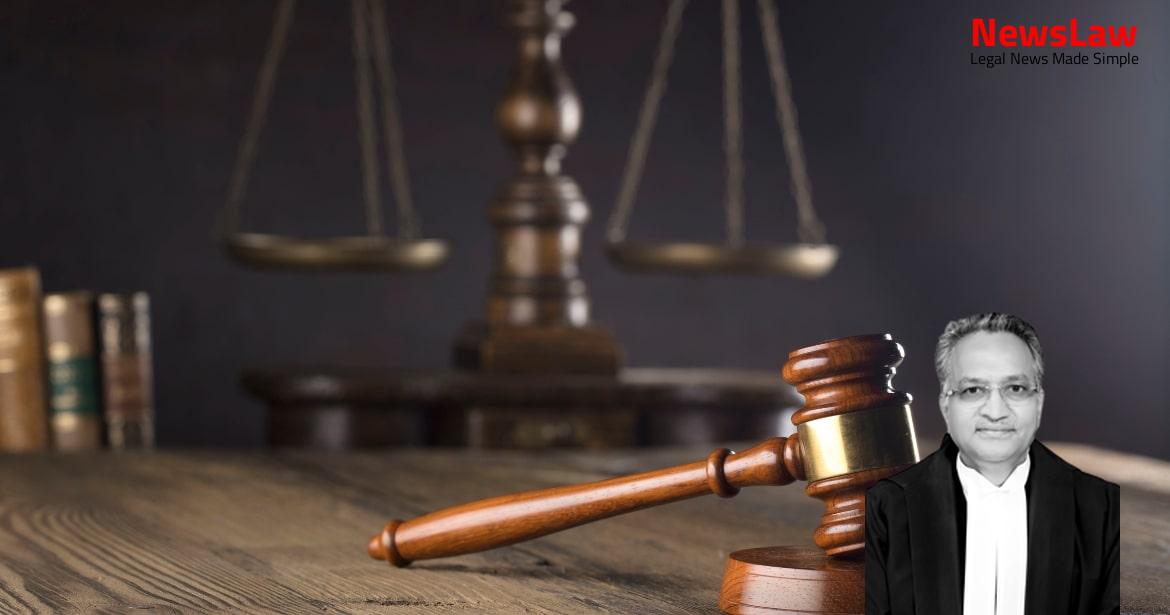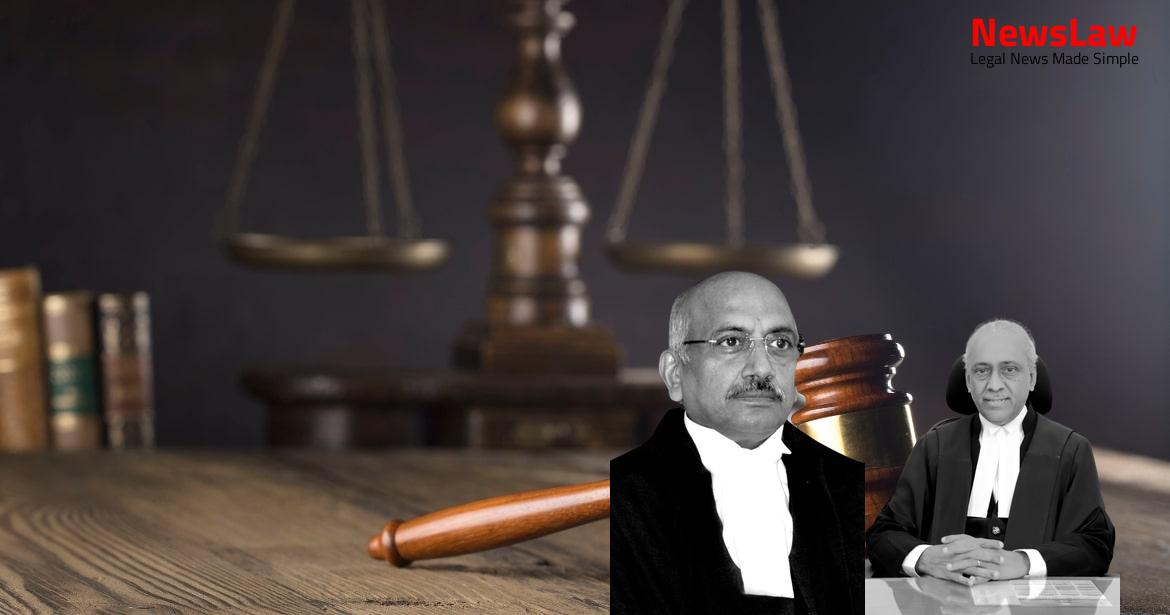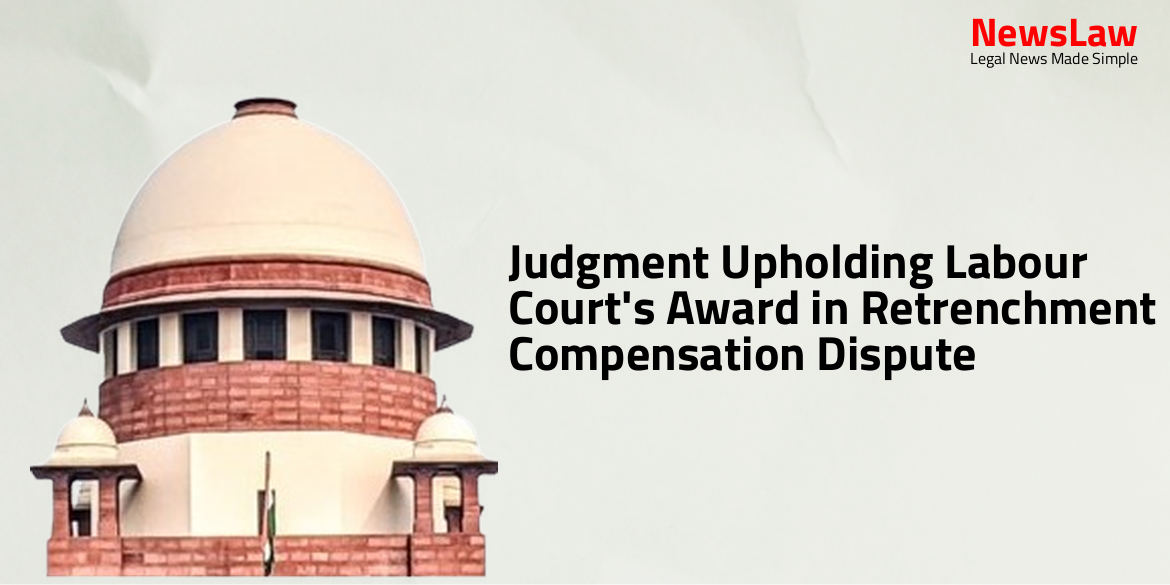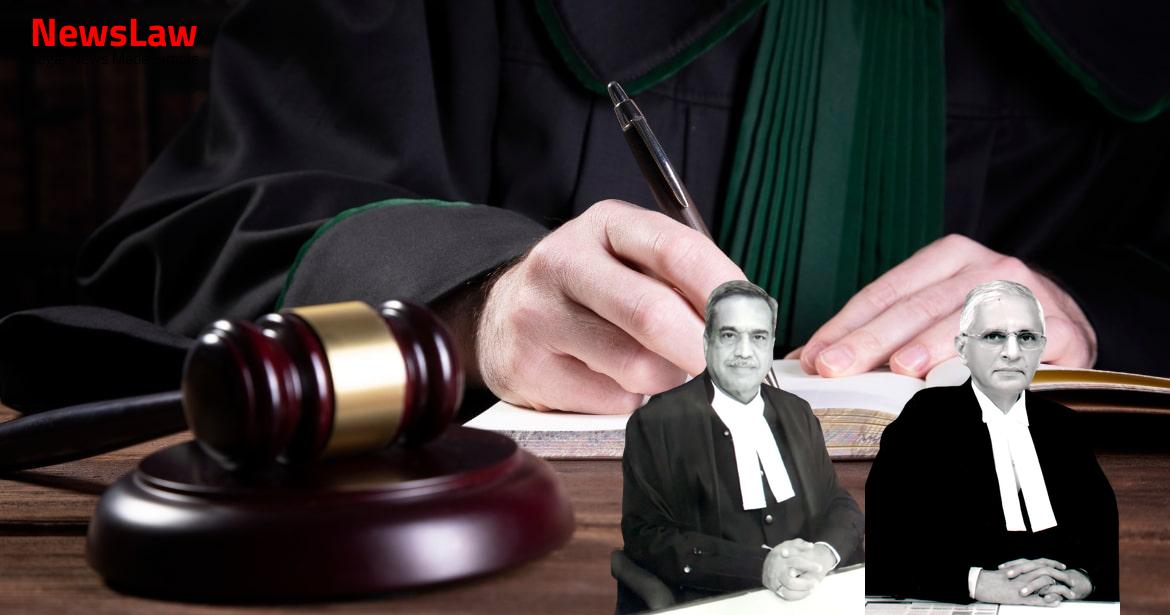In a recent legal case, the court delves into the powers of the legislature to suspend members and the legality of such actions. The analysis focuses on the constitutional framework, adherence to rules, and the implications of exceeding suspension timelines. The judgment sheds light on the significance of procedural fairness and the restraint necessary when exercising such powers. Follow along to understand the nuanced legal perspectives at play.
Facts
- The petitioners, elected from different constituencies in Maharashtra, belong to the BJP, the principal Opposition Party.
- The Chairman was accused of denying the Opposition Party, including the Leader of Opposition, the opportunity to speak.
- Members of the Opposition Party felt the House was not transacting business in a congenial manner, leading to grievances.
- A resolution was moved against 12 BJP MLAs for alleged contempt of the House, despite an apology being tendered.
- The Ruling Party, a coalition called ‘Maha Vikas Aghadi’, faced accusations of trying to cut short the Assembly Session amid a pandemic.
- The Leader of Opposition’s objections during a resolution motion were denied while the Speaker’s chair was vacant.
- The Deputy Speaker was requested to provide relevant material of the proceedings, emphasizing the need for transparency.
- The events stemmed from the Monsoon Session of the Maharashtra Legislative Assembly on 5.7.2021.
- Rule 53 of the Rules is mentioned as prescribing a maximum period of suspension not exceeding the remainder of the Sessions.
Also Read: Land Acquisition Act Interpretation Case
Arguments
- The impugned resolution dated 5.7.2021 does not mention any material justifying the suspension of the petitioners.
- The resolution lacks clarity on how the 12 petitioners were singled out for suspension.
- The resolution violates the principles of natural justice and denies the petitioners a fair hearing.
- Rule 110 mandates a seven days’ notice if a resolution is moved by the Minister.
- The resolution passed without authority of law is considered a nullity.
- The Speaker is expected to act fairly and exercises quasi-judicial functions.
- Suspending members for unruly behavior can set a dangerous precedent and impact democracy.
- The resolution passed in undue haste without giving the petitioners an opportunity to defend themselves.
- The suspension period of one year is deemed unconscionable, arbitrary, and irrational.
- The House’s absolute prerogative to regulate its business is argued against with regard to following the rules.
- The resolution is seen as politically motivated and having ulterior motives.
- The suspension of the petitioners adversely impacts the Opposition Party in the House.
- The state counsel argues that the petitioners have not refuted the accusations of misbehavior in and outside the House.
- The petitioners have countered this argument through their counsel.
- The issues raised are subject to further analysis and discussion.
- The petitioners mainly challenge the procedure followed by the House in passing the resolution.
- The petitioners’ counsel distinguishes limited power in the context of expulsions vs. ex facie contempts.
- The court is not convinced by the arguments presented on behalf of the petitioners.
Also Read: Authority of CMM/DM to Appoint Advocate in Secured Asset Cases
Analysis
- The limits of the powers, privileges, etc. of the Legislature are subject to the provisions of the Constitution.
- The rules framed by the Legislature can be altered by the House at any time.
- The rules framed under Article 208 of the Constitution acquire the status of law and must be followed.
- The judicial review is an incident flowing from the concept of the fundamental law being the limit of the powers of the state organs.
- The judiciary is the guardian of the Constitution in a federal setup and ensures adherence to legal boundaries.
- Even if Parliament has limited powers to punish for contempt, the power to expel would be within the limits of such remedial contempt power.
- An inherent power of the Legislature is not absolute, but limited to protective and defensive actions necessary for orderly functioning.
- The legislature has the prerogative to deviate from rules but must adhere to the prescribed substantive stipulation.
- The power to suspend a member must be temporary and for self-security, ensuring smooth functioning of the House.
- The rules under Article 208 must be followed to ensure compliance with the procedure established by law.
- Legal remedies for breach of privilege are generally limited to a Session of the House due to the effect of prorogation.
- The time period of suspension specified in the impugned resolution is considered arbitrary, disproportionate, excessive, illegal, and unconstitutional.
- The suspension of a member in the UK House of Commons is governed by Standing Order No. 22 (1 to 4), with specific time periods for suspension on the first and subsequent occasions.
- The power to suspend members is vested
- only
- upon the Speaker of the House, or in the Speaker’s absence, upon the Deputy Speaker as per Article 180 of the Constitution.
- The Speaker’s exercise of power to suspend is considered a quasi-judicial decision, requiring a formal inquiry, opportunity for the member to be heard, and satisfaction about the disorderly conduct committed by the member.
- The House had no jurisdiction to pass the impugned resolution, especially considering the haste in which it was done.
- The impugned resolution, in this case, exceeded the rational limits by suspending the members beyond the ongoing Session.
- Suspension beyond the Session not only deprives the member but also impacts the constituency, violating democratic values.
- The suspension should be limited to ensure the orderly functioning of the House during the ongoing Session, beyond which it becomes excessive and irrational.
- The rights and privileges of the Legislature are derived from Article 105(3) for Parliament and Article 194(3) for State Legislatures.
- The House must adhere to the rules framed under Article 208 of the Constitution for the procedure, deviation from which could be deemed unconstitutional.
- Court’s interference is limited to ensuring that the House had the jurisdiction to adopt such a resolution, not on the procedural irregularities.
- The suspension for disorderly conduct must follow a graded and rational approach, as outlined in Rule 53 of the Rules.
- Suspension for a year is deemed more severe than expulsion, impacting both the member and the constituency representation before the House.
- The House’s power to suspend is implied for self-protection but must be rational and necessary for the proper functioning of the House.
- Exceeding the outlined timeline for suspension is considered a substantive violation and not merely a procedural irregularity.
- The suspension beyond the Session is unnecessary, irrational, and borders on perversity, affecting democratic values.
- The need to evolve and adhere to good practices in the House is highlighted.
- Proponents of undemocratic activities in the House should be denounced and discouraged.
- Actions against misconduct must be constitutional, legal, rational, and follow established procedures.
- Disorderly conduct, especially ‘grossly disorderly’ behavior, has no place in the House.
Also Read: Analysis of Compensation Method in Land Acquisition Case
Decision
- The petitioners are entitled to all consequential benefits of being members of the Legislative Assembly after the expiry of the concerned Session in July 2021.
- A formal notice has been issued to the respondents to appear on 11.01.2022.
- Pending applications, if any, have been disposed of.
- No costs have been ordered.
- The writ petitions have been allowed, declaring the resolution directing the petitioners’ suspension beyond the stated Session as invalid, unconstitutional, illegal, and irrational.
- The preliminary hearing of the writ petitions took place on 14.12.2021 despite challenges of online interaction.
- The impugned resolution is deemed ineffective beyond the remainder of the Session in which it was passed.
Case Title: ASHISH SHELAR Vs. THE MAHARASHTRA LEGISLATIVE ASSEMBLY (2022 INSC 116)
Case Number: W.P.(C) No.-000797 / 2021



